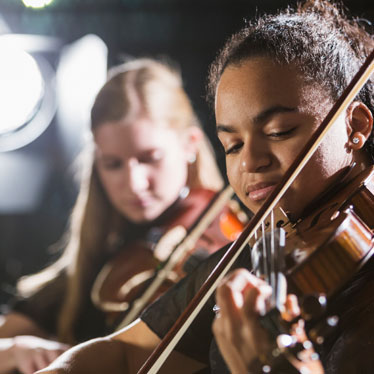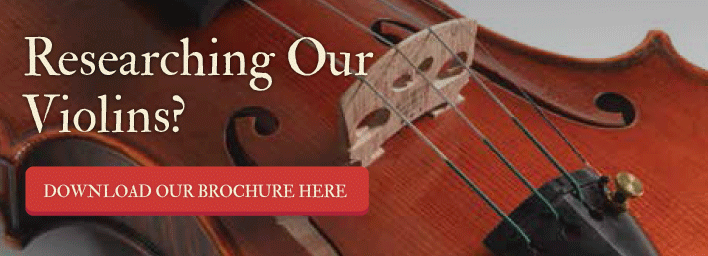4 Benefits Of Developing Your Performance Style

String musicians spend countless practice hours perfecting their art, honing essential techniques and learning to perform flawlessly. Once it comes time to perform, however, most successful professional musicians find taking the time to develop a performance style benefits their career by creating a niche that allows them to stand out from their counterparts.
For example, famous German violist Tabea Zimmerman is committed to the emotional engagement of her fellow musicians, as well as the audience members; and there is no doubt that this personalization of style buoyed Tabea's rise to the ranks of world-renowned (and beloved) violist. While you should never try to imitate another musician's style, it is worth the time to go inward and tap into your personal connection and natural expression of music; then work on a unique performance style that sets you apart from other musicians in your class, competition, rank, etc.
As performances and solo concerts become increasing parts of your musical life, personalizing performance style benefits both you and the audience.
1. It bridges the gap between stage and seat
Music, like history, has moved through time as an oral tradition. In the larger, cosmic picture it's only recently that these "universal languages" were translated onto the page. As a performer, you're paying homage to that oral tradition, and the stories you tell weave a performance together. This can happen in biographical form, informative quips about the music and/or the composer, anecdotal shares, the natural expression of your body, or any combination of the above.
Hearing you speak before and in between the pieces you perform creates one of the strongest bridges between you and the audience. If you're a born speaker or entertainer, this is a fantastic way to let your personality shine. If not, a more practiced version will still make the audience feel more connected to you by the time the performance ends.
Read, How to Involve Your Audience in the Performance, for more tips on storytelling and other ideas that bridge the gap between the stage and the seats.
2. You'll cultivate a recognizable brand
Branding is everything for companies, and it's smart for professional musicians to brand themselves as well. Is there something you love to wear, or that is a signature piece of your wardrobe (hats, crazy socks, patterned bow ties, a particular color)? Capitalize on that and make it a signature part of your look - always respecting any relevant dress codes.
There's no need to advertise it or call special attention but repeat "performances" of "the look" will do the work for you. Even something like an instrument finished in a particular color can set you apart, helping the audience remember you.
3. The Audience will be better entertained
It's true that classical or difficult music can feel very formal. The technical aspects of what you're required to play can seem rigid at times. Remember, though, that the physical act of playing music should be fluid and full of motion. Never be afraid to move your body naturally to the rhythm and flow of the music you're playing. In addition to being more expressive, a more fluid and motion-rich approach is better for your body - and motion captures the audiences' attention.
Entertaining an audience typically involves some type of surprise or enriching element(s). So, for example, in the midst of a concert highlighting Italian classical performances - you could intersperse a piece from a modern Italian composer (or a personal arrangement of an Italian folk song that you love) - to add interest and season the performance with something that give the audience insight into your own tastes and preferences.
Do you play another instrument? Dedicate a portion of the concert to playing a piece on another, favorite instrument to mix it up, sharing your multifaceted self. Are you also a singer? Consider leading the audience in a sing-a-long. Any and all of these provide glimpses into the unique person behind the instrument and audiences love it.
The post, How to Create Your Unique Performance Style, offers additional inspiration for letting your performer's light shine while you're on stage.
4. Enhances the energetic impact of the music
Psychologists and sociology experts have long-known body language comprises the large majority of human communication, with words making up only a small portion. Music is not all that different. In fact, if nuanced expression weren't such an integral, energetic part of an orchestral performance, the large majority of conductors would be out of work; musicians could simply set their metronomes to the same speed and commence playing. Your facial expressions go a long way toward helping audience members feel the music and this - combined with other body language cues - enhance the energetic impact of your music.
Any practiced musician can stand on a stage, dressed in black-and-white, performing written sheet music.


